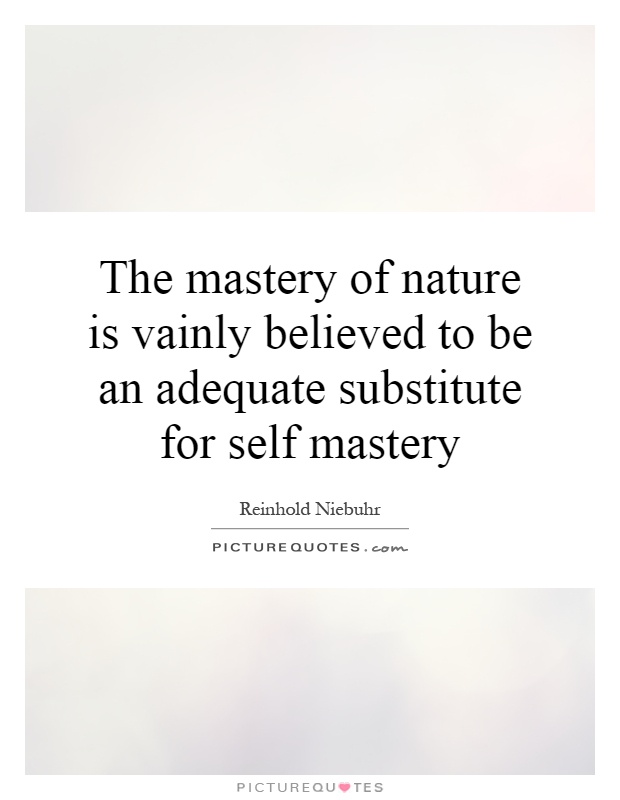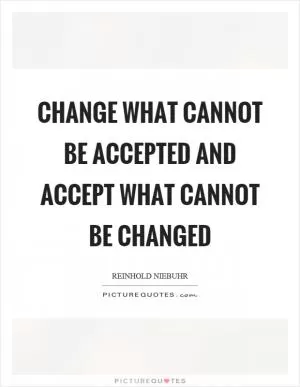The mastery of nature is vainly believed to be an adequate substitute for self mastery

The mastery of nature is vainly believed to be an adequate substitute for self mastery
Reinhold Niebuhr, a prominent theologian and political thinker, was a firm believer in the idea that the mastery of nature is not a sufficient replacement for self-mastery. In his works, Niebuhr emphasized the importance of understanding and controlling one's own desires, impulses, and emotions in order to live a virtuous and fulfilling life. He argued that simply trying to dominate and control the external world, without first mastering oneself, is ultimately futile and can lead to destructive consequences.Niebuhr's philosophy can be seen as a critique of the modern obsession with technological progress and the belief that humans can conquer and manipulate the natural world to their own ends. He believed that this hubris and arrogance in trying to dominate nature without first mastering oneself can lead to a sense of alienation, emptiness, and moral decay. In his view, true fulfillment and happiness can only be achieved through self-awareness, self-discipline, and humility.
Niebuhr's ideas are particularly relevant in today's world, where technology and materialism often take precedence over spiritual and moral values. The relentless pursuit of wealth, power, and control can lead to a sense of disconnection from oneself and others, as well as a lack of empathy and compassion. In order to truly thrive as individuals and as a society, Niebuhr would argue that we must first focus on mastering our own inner demons and cultivating virtues such as humility, compassion, and selflessness.












 Friendship Quotes
Friendship Quotes Love Quotes
Love Quotes Life Quotes
Life Quotes Funny Quotes
Funny Quotes Motivational Quotes
Motivational Quotes Inspirational Quotes
Inspirational Quotes